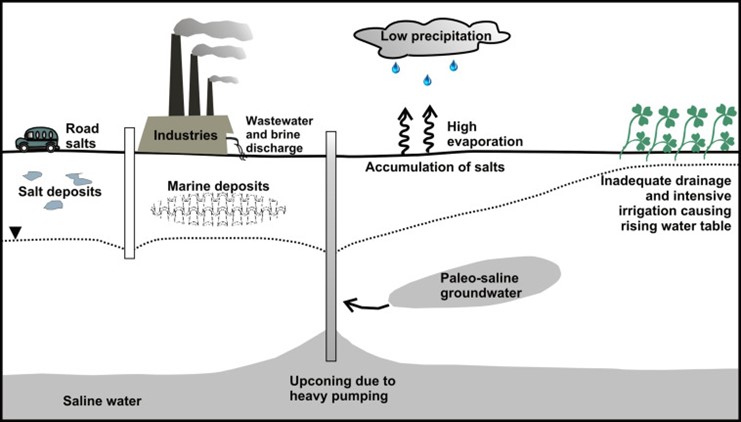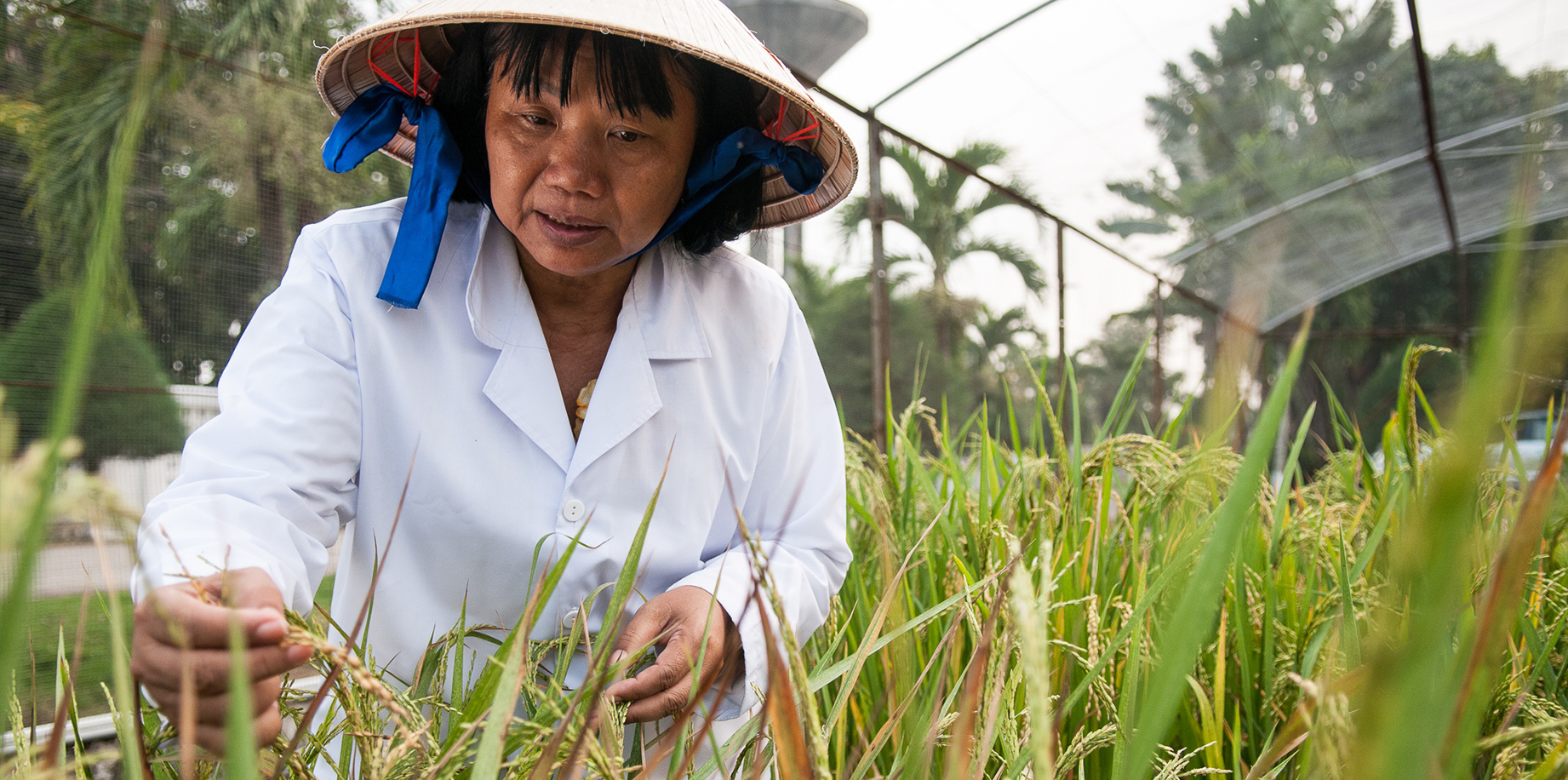Irrigation Can Result in the Salinization of Soils Because
With steeply sloped fields. Schofield Thomas.

Soil Salinization Oxford Research Encyclopedia Of Environmental Science
Irrigation salinity occurs due to increased rates of leakage and groundwater recharge causing the watertable to rise.

. Over-irrigation in dry areas can cause _____. Most of the irrigation water evaporates or is taken up by the crop with some penetrating deep into the soil in some cases. If salts accumulate in soil due to irrigation then its because the salts are IN THE IRRIGATION water.
Which irrigation system is likely to result in less salinization of soil. Salts are deposited on the soil surface as water evaporates. The rest of this post will go into a lot more detail about salinization as it relates to irrigation and how to stay on top of both.
Due to the natural trace amounts of salt in water every form of irrigation will eventually raise the salt content of the soil. Managing soil salinity at early stages helps to reverse it. A buildup of salt in the soil to the point where it negatively affects plant growth.
Soil salinity results from an excess of salts in the soil that reduces plant growth and crop productivity and affects soil biological activity. Drip irrigation causes salinization. Irrigation can result in the salinization of soils because _____.
Constant over-irrigation will result in your soil losing nutrients through leaching. Soil salinity is described and characterized in terms of the concentration and composition of the soluble salts. When the water evaporates the salts are left behind.
No-till farming would be most beneficial for farmers. Moreover decreasing the soil volume to be reclaimed soil reclamation should focus. Salinity intersects with major global concerns including food security desertification and biodiversity protection.
And when the crop takes up water it leaves the salt behind as well. However heavy contamination leads to complete loss of farmlands and desertification due to. The extent of problems related to salinity is predicted to increase not only because of changes in the climate but also as a result of poor irrigation practices.
It reduces the input of salts due to increases in water and nutrient use efficiency and the use of the nutrients contained in irrigation water and creates a suitable root-zone salinity EC e EC t. However this feature isnt unique to drip irrigation. 3 should be placed here Jo ur na l P re -p ro of Journal Pre-proof 10 42 Ionic characteristics of salinization As.
Irrigation can result in the salinization of soils because. The irrigation water washes away soil leaving behind concentrated salts. Irrigation is typically used in areas where windblown salts from sea spray can accumulate when the protective vegetation is removed c.
Irrigation can result in the salinization of soil because _____. Shortages of fresh water require the use of saltwater for irrigation b. Secondary salinization can arise when salts accumulate near the soil surface as a result of rising water tables due to land management practices that change the soil hydrology such as irrigation or tree clearing Cisneros Cantero.
The chemical composition. Rising watertables can bring salts into the plant root zone which affects both plant growth and soil structure. You can buy a soil test kit via the rhsplantscouk website for only 2599.
The distribution of saline sodic and saline-sodic soils in the world. This kit contains everything you need for testing both the pH and the nutrient content of your soil. You can determine the nutrient status of your soil by using one of the many types of test kits available.
Soil salinization is the accumulation of water-soluble salts within soil layers above a certain level that adversely affects crop production environmental health and economic welfare. Salts in the water are deposited on the soil surface as water evaporates. Therefore it can be considered that irrigation and rainfall have a significant impact on the depth distribution of farmland soil salt because they will lead to the salt downward migration and accumulation in deeper soil.
Erosion can result in a vicious cycle of worsening erosion because. Saline earths show lower agricultural productivity worsen farmers wellbeing and the economic situation in the region. Salinization of soil negatively impacts plant development and induces land degradation.
The map shows the distribution of saline sodic and saline-sodic soils all over the globe. It occurs in response to any practice that affects the soilwater balance and allows water-soluble salts to accumulate in the soil. Fertigation combined with drip irrigation can alleviate fruit crop salt stress and reduce soil salinization.
Irrigation drainage changes in plant community composition that alter soil cover or rooting characteristics and summer fallow are some agricultural management practices that can result in salinization if the climate and hydrology conditions are favorable. The salt remains behind in the soil when water is taken up by plants or lost to evaporation. Salinization can result where irrigation waters are compromised by salinity.
Salinization occurs because salt is allowed to accumulate in the soil in the absence of adequate leaching assuming the soil was not saline before irrigation began and assuming salinization did not occur as a result of a rising water table close to the soil surface. Even though soluble salts are inherent in all.

Soil Salinization A Growing Threat To Our Natural Resources Chloride Free Foundation

Irrigation Drought Sea Level Rise And More Are Causing Salt To Build Up In Soils Around The World What Can We Do


No comments for "Irrigation Can Result in the Salinization of Soils Because"
Post a Comment